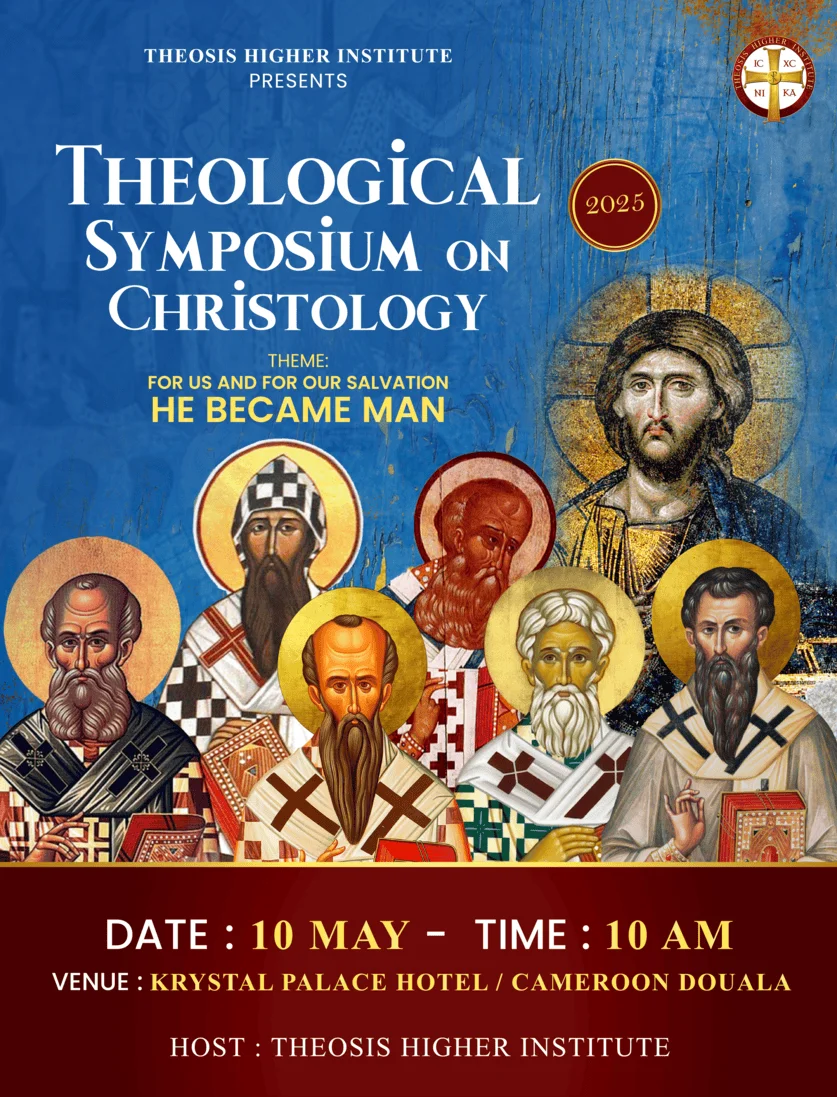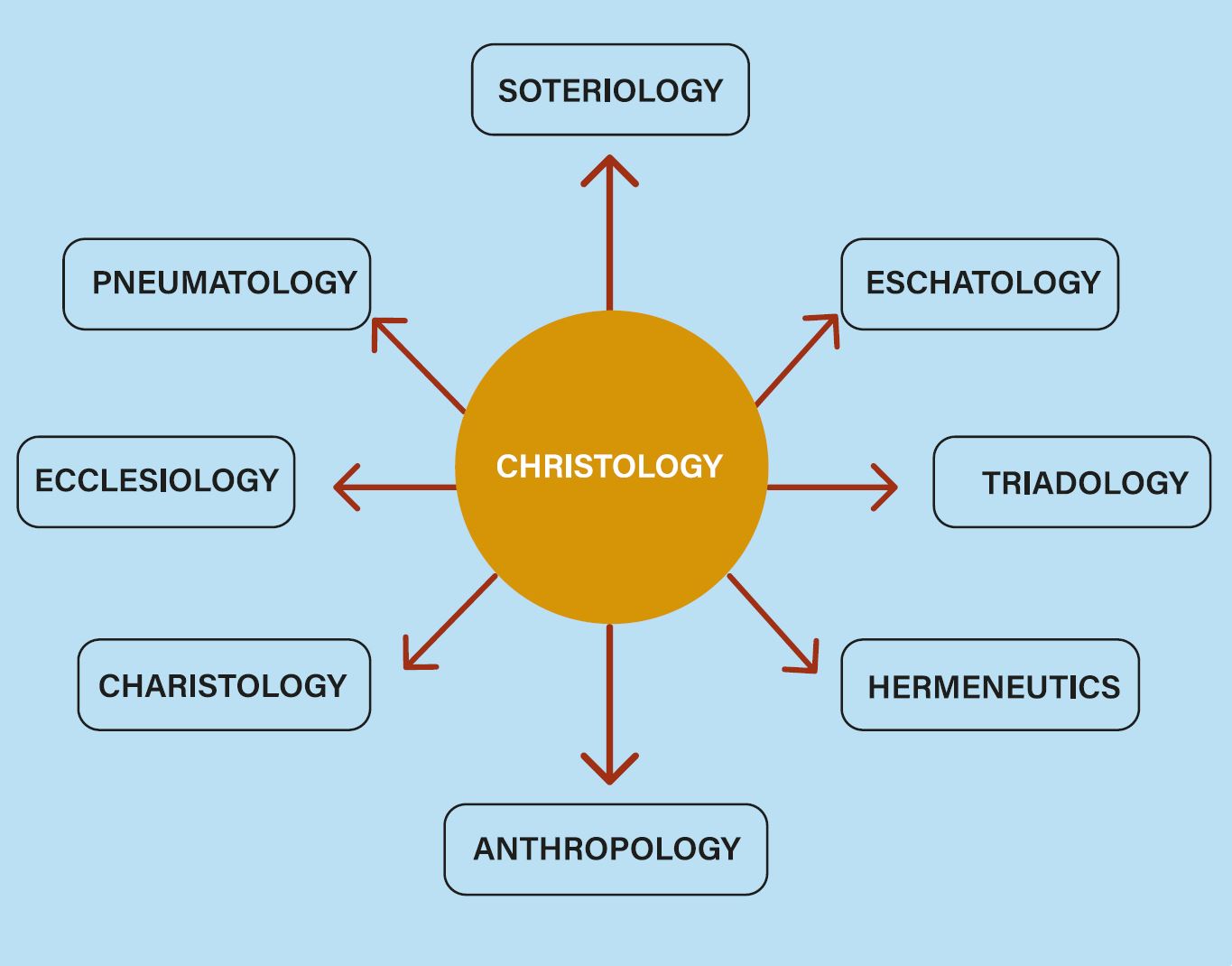About this event
Details
Date: May 10, 2025.
Contact:+237 6 82 39 22 53/
+237 6 82 39 22 63
Website: www.theosisinstitute.org
Email: contact@theosisinstitute.life
Esteemed theologians, clergy members, theology students, and many others joined Theosis Higher Institute in celebrating 1,700 years of Christology as we prepare for Horizon 2033, the complete cycle of 2000 years of the Church. We firmly believe that the Body of Christ holds the answers to humanity’s crises and are convinced of a forthcoming theological breakthrough, a deeper experience of Christ beyond what previous generations knew.
The purpose of this event
The purpose of this Theological Symposium on Christology was to lay the framework for the 21st century Church from the vantage point of Christology as the nexus for every other field of theological endeavor.
Your beliefs about Christology will shape your Theology, which pertains to your understanding of God. These beliefs will also influence your views on Anthropology, determining your perspective on Man. Likewise, your Christological understanding will impact your views on Soteriology, the nature of salvation. It will affect your stance on Eschatology, regarding the nature of the end of things, and guide your beliefs about Ecclesiology, the nature and mission of the church.
- What you believe about your Christology will influence your theology, which is what you believe about God.
- What you believe about Christology will influence what you believe about Anthropology; which is what you believe about man.
- What you believe about Christology will influence what you believe about Soteriology; the nature of salvation.
- What you believe about Christology will influence what you believe about eschatology; the nature of the end of things.
- What you believe about Christology will influence what you believe about ecclesiology; the nature and the mission of the church.
A word from Prof. Shawn Smith, Chancellor of Theosis Higher Institute
” This year 2025 marks a significant milestone: 1700 years since the first ecumenical council at Nicea in 325 A.D. affirming the unity of faith in Christ Jesus: Truly God and Truly Man. This remains foundational to our mutual faith in the Head of the Church, the Savior of the world.
After the departure of the first century Apostles, the Church in the Patristic age was confronted with rising views and doctrines that questioned the very identity of Jesus Christ, the foundation upon which the Church is established. The post-Apostolic Church Fathers had to address these questions, formulating a Christology that addressed the heretical influences from the Greek and Jewish cosmological world while establishing a firm and creedal identity of Jesus Christ.
Our Ancient Faith is Christological. It is everything related to the Person and Saving Work of Christ. The challenges faced by the 21st century Church can be traced back to our understanding of Christology, the Person and the Work of Christ, for Christology is the nexus point of all aspects of Theology. This indicates to us that if the 21st century Church is to rise and effectively fulfill Her mission in the midst of all challenges in our contemporary world, we must have an honest theological appraisal of the historical development of Christology in the Patristic Age, celebrating the Church Fathers and drawing from their works the ancient wisdom and Christological hermeneutic that is being passed down throughout the Church Age. “
Outline of Symposium Activities
- Keynote speeches.
- Highlight of events that led to Ecumenical Councils.
- Synoptic review of the theological deliberations surrounding the New Testament Analysis of the Ecumenical Councils.
- Establish the biblical and theological basis for the universal and cosmic Lordship of Jesus Christ.
- Modern recurring influences in the understanding of Christology and the mission of the Church in the world.
- Presentation of undergraduate research.
How to Register
NB: Registration For Online Participation For The Theological Sympodium on Christology (Online viewers only)
Registration is now open at the Eikon Service Center (For Online Participation Only): Rue Bonajinge Deido, Douala, opposite boulangerie Saker Deido.
For further information and registration details, please contact:
+237 6 82 39 22 53 / +237 6 82 39 22 63
Email: contact@theosisinstitute.life
In-person attendance at the Theological Symposium on Christology are now fully booked!
But don’t worry, you can still join us online and be part of this historic gathering.
Meet the Speakers
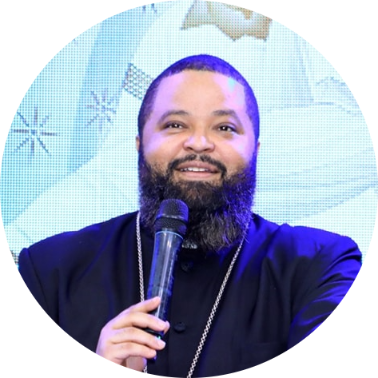
Dr. Shawn Smith
Dr. Shawn Smith is an esteemed Theologian, Ordained Minister, Founder and Apostolic Overseer of Gospel of Christ Ministries (GCM), a growing network of churches across Cameroon, with unified communities in the United States, Canada and Europe. With an impactful leadership that spans more than two decades, Dr. Smith is a respected authority on the teachings of the Apostle Paul. He has the divine commission to “present the revelation of Christ Jesus, the loveliness of His Person and the perfection of His work, with excellence and clarity for the rising of the Glorious Church.” He has dedicated himself to inspiring a renewed understanding of Christoformity through his ministry.
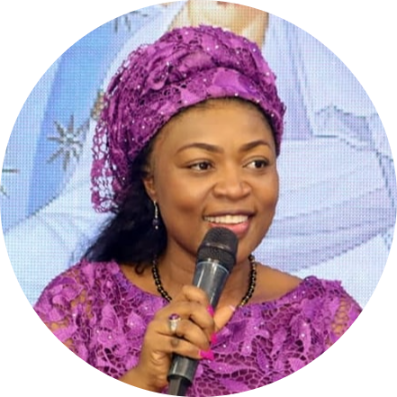
Dr. Annie Smith
Dr. Annie Smith is an ordained minister of the Gospel of Jesus Christ who exhibits the unique qualities of the grace of God. She is married to Dr. Shawn Smith, the Apostolic Overseer of Gospel of Christ Ministries, and she shares in the divine mandate, “to present the revelation of Jesus Christ, the loveliness of His Person and the perfection of His work with excellence and clarity for the rising of the Glorious Church”. Committed to this mission, Dr. Annie leads diverse evangelistic outreaches and has organized numerous seminars for women through Heart to Hearts, a platform that addresses the spiritual well-being of women, purpose, grace, community, destiny, wholeness, education, marriage, and stewardship. She is the founder of the Youth Social Development Program (YSODEP), an NGO dedicated to empowering young adults to embrace their God-given purpose and become transformative leaders.
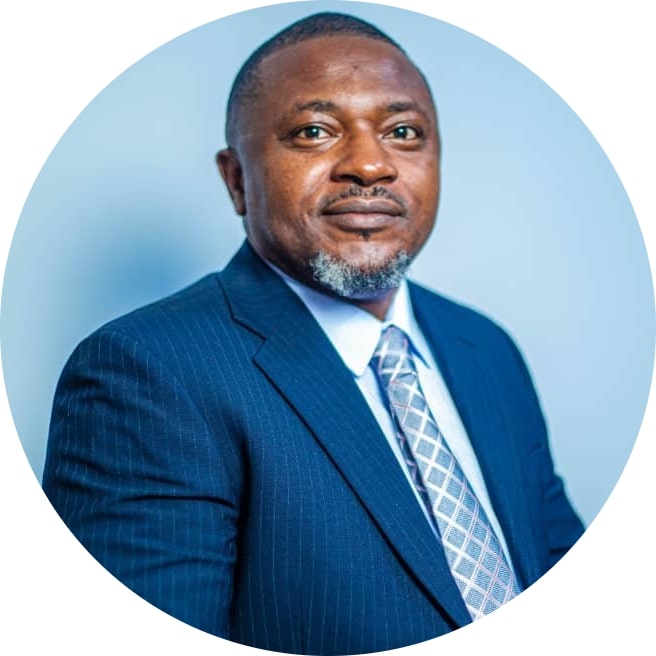
Apostle Dr. François Tchidjé
Apostle Dr. François Tchidjé is an experienced theologian, Founding President and Apostolic Overseer of Living Stones Ministries International (MILIS), a Christian organisation present in 12 countries and with over 7,000 members worldwide. MILIS aims to build and deploy transformational leaders around the world so that each individual can reach their full potential by combining spirituality, personal development and entrepreneurship. Recognised as a Doctor of the Word, Dr François Tchidjé exercises a profound, structuring and transformational teaching ministry in the service of building up the Body of Christ.
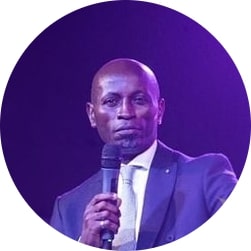
Rev. Dr Théophile Obaker
From Mission Évangélique Vie et Paix du Cameroun (MEVIPAC), Dr. Théophile Obaker is a Socio-anthropologist of Religions, a jurist, a pedagogical supervisor, an author, missionary, historian and a writer. He descends from a transgenerational family who have held the mystic secret of the faith of Christ with a pure conscience. He has distinguished himself as an expert in Cameroon’s church history, especially of the revival church in our nation Cameroon. Dr. Obaker holds a Chair of religious history at the Institut Biblique de Théologie Evangélique (IBTE), Institut de Théologie Pentecôtiste de la MEVIPAC (ITPM), and the Ecole du Ministère Pastoral le Bon Levain (EMPBL).
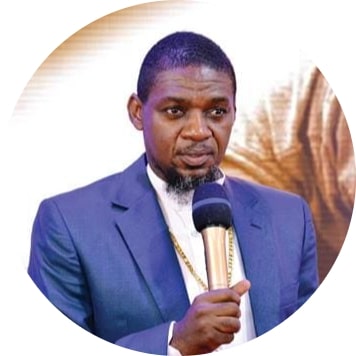
Bishop Ndi Wilson Njinwi
Bishop Dr N. N. Wilson is the presiding Bishop of Garden of Life Ministries worldwide; an ever-growing network of churches. He is the CEO of a Christian television channel – Life TV – which is broadcasted around Africa. He was a trained accountant from the Association of Chartered Accountants (ACCA, Glasgow University) before receiving an Apostolic call into the ministry. He is the Chancellor of Wells of Salvation International School of Ministry. He is a holder of several certificates and graduate diplomas in Theology from Bible Training Centre for Pastors, Douala, Cameroon; Theosis Higher Institute, Douala, Cameroon and has a PhD in Systematic Theology from The Ambassador Seminary and University of Kumba, Cameroon, an Affiliation of Dayspring Christian University U.S.A.
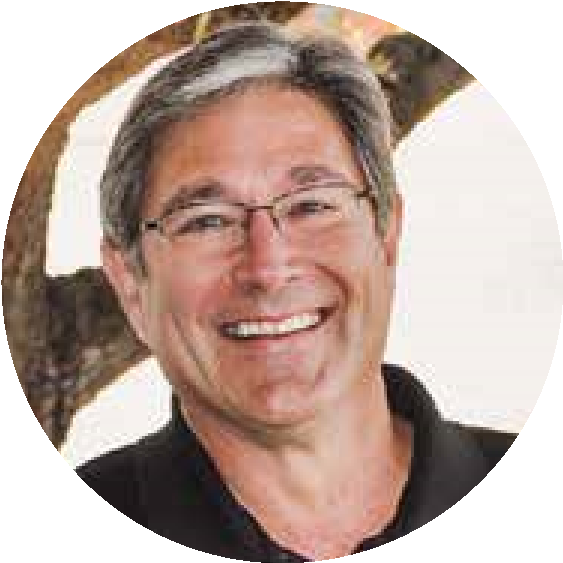
Dr. C. Baxter Kruger
Dr. C. Baxter Kruger is a theologian, a Trinitarian scholar, a writer and the Director of Perichoresis Ministries, an international ministry proclaiming the gospel of the Triune God. A lifelong student of psychology, Dr. Kruger has degrees in Political Science, Divinity, and earned his PhD of Philosophy from Kings College, Aberdeen in Scotland. He has worked as a minister to college students, a lecturer in theology at the University of Aberdeen and other universities, and as an associate pastor. Nowadays, he teaches and preaches around the USA and abroad. As a Trinitarian theologian of modern times, Dr. Baxter has reformed the church's vision of God by reviving and masterfully expounding the ancient apostolic and patristic understanding of the triune God as love.
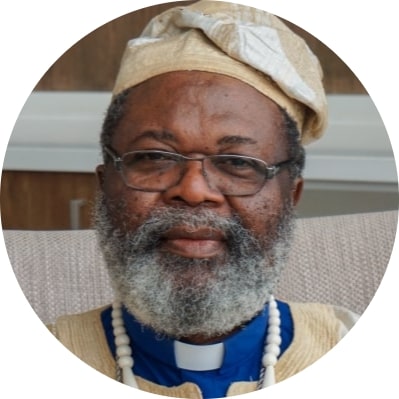
Rev. Dr. Jean Libom Li Likeng
Rev. Dr. Jean Libom Li Likeng is a trained theologian in contemporary Christianity from the London Institute for Contemporary Christianity. He is equally an expert in conflict resolution, a consultant in mental health and trauma management, coaches several Christian associations and acts as a consultant in church management and leadership. Reverend Likeng has a brilliant university academic background in zoology. By the grace of God, he has distinguished himself in service in the Lord’s vineyard in various capacities.
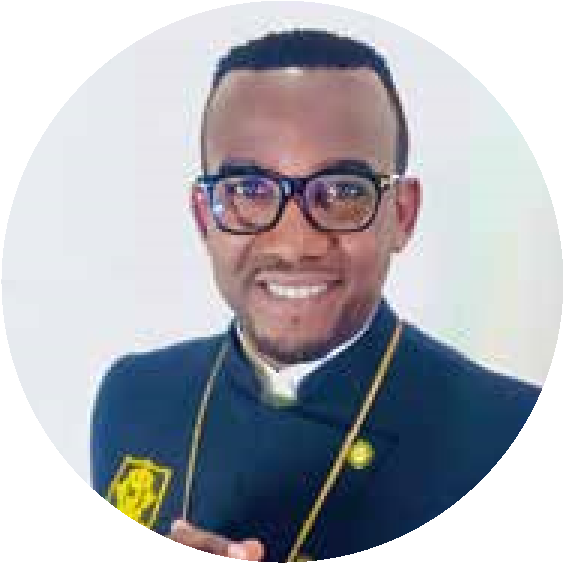
Dr. Georges Boum
Dr Georges is a man of God from Cameroon N2N Christian University with multiple talents. He has a solid academic background in Journalism, Computer Science, Psychology and Intercultural Theology. As an expert in Christian communications, he is the publishing director of Media Christ and a consultant to CRTV and other media. Since the beginning of 2024, he has been the leader of the American university in Cameroon, and Nation 2 Nation Christian University (N2NCU), headquartered at the Cameroon Presbyterian Church where he coordinates the activities of the 3rd church service at the large EPC Adna parish in Yaoundé at Elig-Essono Rue CEPER.
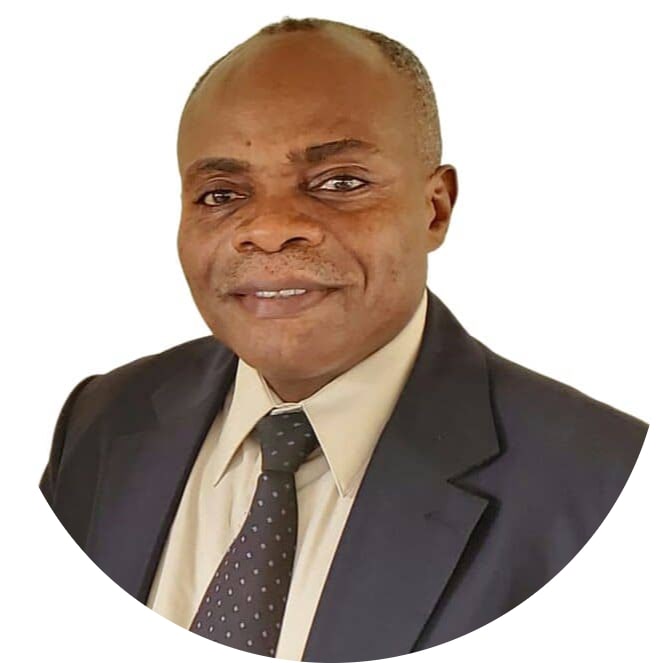
Prof. Fohle Lygunda
Prof. Fohle Lygunda, Professor of missiology, leadership and contextual theology; co-administrator of the Association des Théologiens d'Afrique Francophone, ATAF, and manager of Tearfund's theological department in Africa. He is also attached to North-West University (South Africa) and Bakke Graduate University (Texas, USA), where he directs post-graduate work. He is the author of several scholarly books, including Transforming Missiology (Langham, UK, 2018), Des missiologies importées (Langham, UK, 2023) and Contextualisation Aujourd'hui (FLP, RDC, 2023). He is the founder of the Centre Interdisciplinaire de Recherche et d'Innovation (CIRI), which supervises researchers in the postdoctoral program.
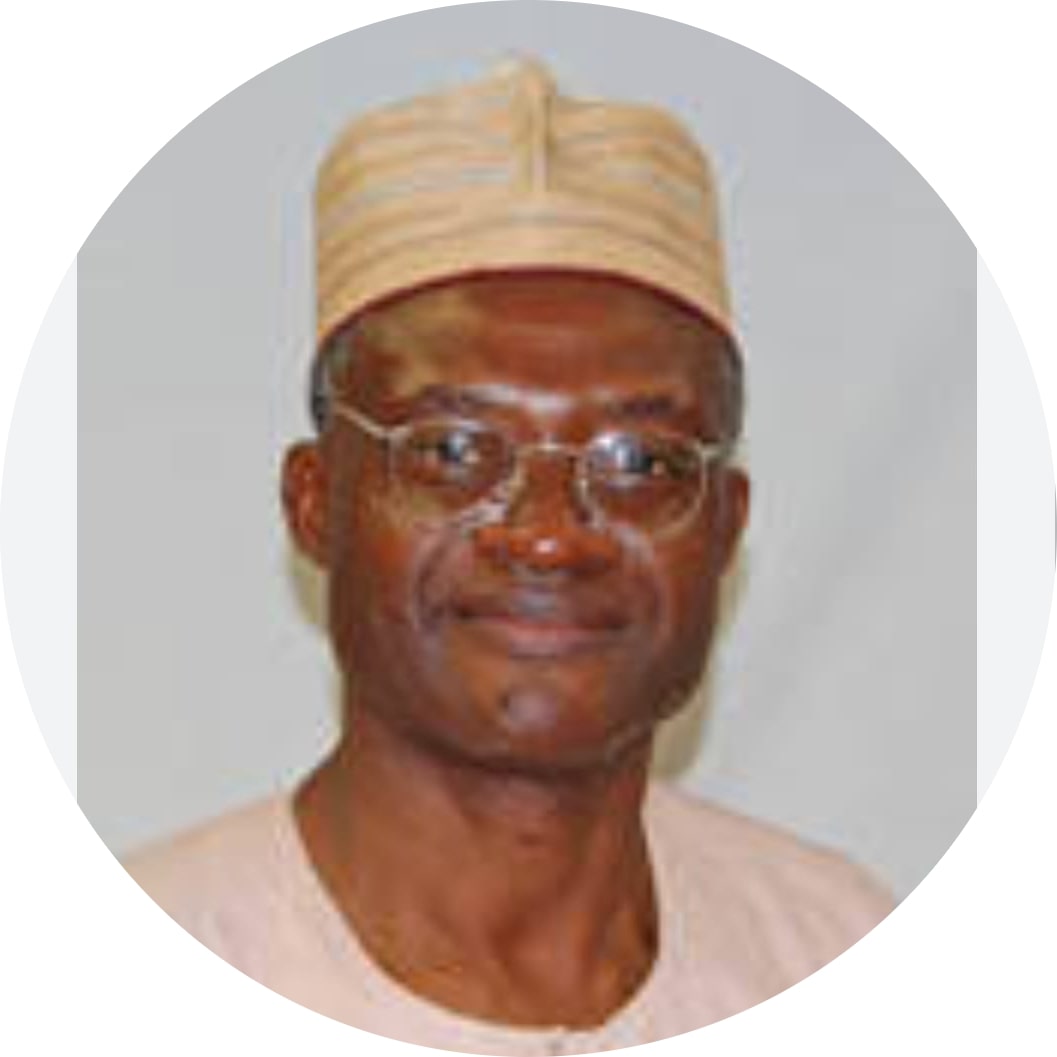
Rev. Prof. Robert Pindzie
Emeritus Professor of Church History, African Missions and Islamology, Faculté de Théologie Évangélique du Cameroun (FACTEC) / Faculté de Théologie Évangélique de Bangangté (FACTEB) Former Dean, Faculté de Théologie de Menganga Scientific contributor, Dictionary of African Christian Biography (DACB), with a dozen articles.
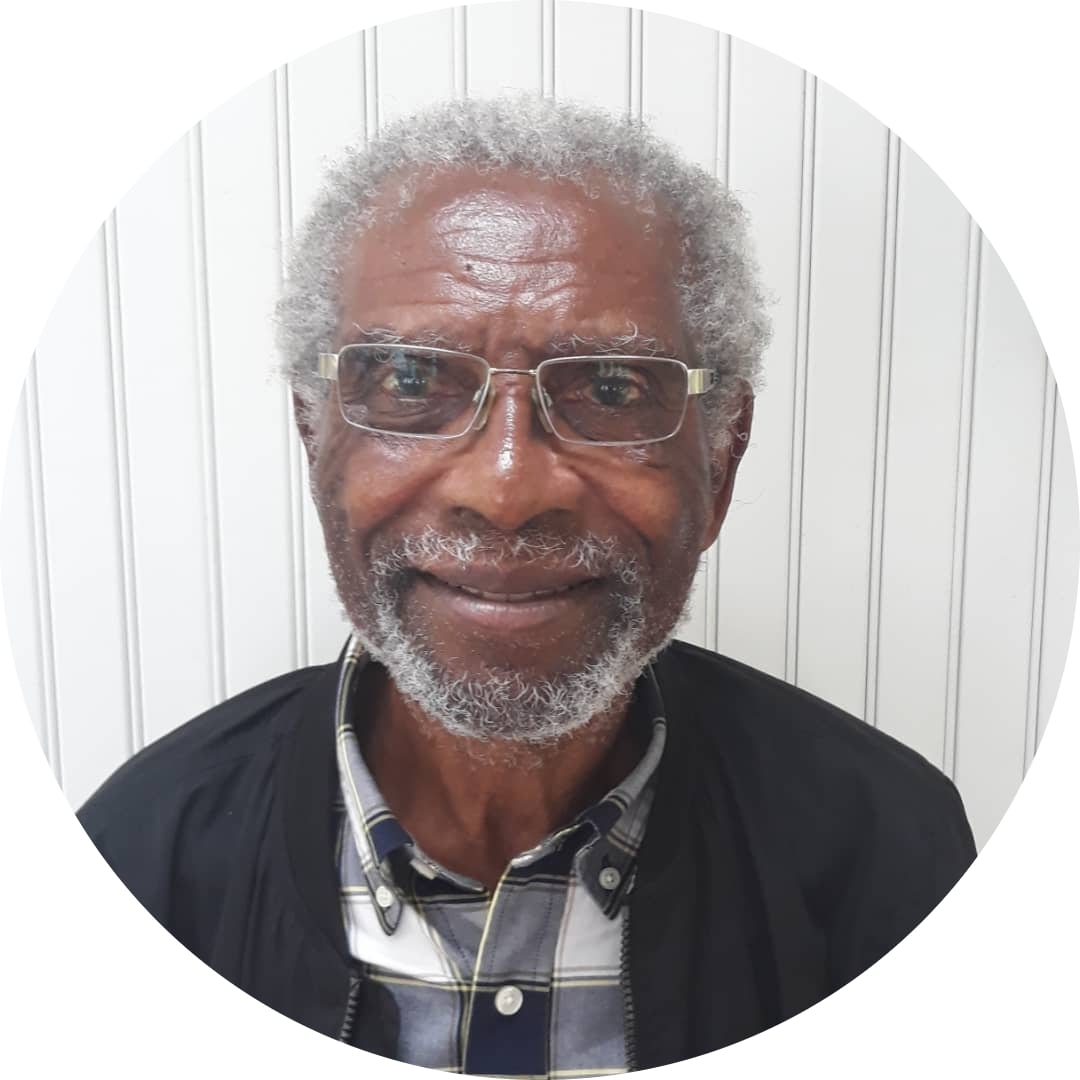
Joseph Mfonyam
Joseph N. Mfonyam has been a missionary with SIL Cameroon and Wycliffe Bible Translators, UK, since 1981. He is a Bible Translator, a Linguistics and Translation Consultant. He has been involved with teaching and training for more than four decades. He has taught courses in Cameroon, France, England, USA and Canada. He is an adjunct faculty member of the Cameroon Baptist Theological Seminary, Ndu. He has a passion for souls and has been involved in personal and world evangelism, discipleship and leadership training for years. He has attended conferences on world evangelism in Africa, Europe USA and Asia.
The Nicene Creed
I believe in one God, the Father Almighty,
maker of heaven and earth,
And of all things visible and invisible.
And in one Lord Jesus Christ, the only begotten Son of God,
Begotten of the Father before all worlds;
God of God, Light of Light,
very God of very God; begotten, not made,
Being of one substance with the Father,
by whom all things were made.
Who for us men and for our
salvation came down from heaven,
And was incarnate by the Holy Spirit
of the virgin Mary, and was made man;
And was crucified also for us under Pontius Pilate;
He suffered and was buried;
And the third day He rose again according to the scriptures,
And ascended into heaven,
and sits on the right hand of the Father;
And He shall come again,
with glory, to judge the living and the dead;
Whose kingdom shall have no end.
And I believe in the Holy Spirit,
the Lord and Giver of Life;
Who proceeds from the Father and the Son;
Who with the Father and the Son together is worshiped and glorified;
Who spoke by the prophets.
And I believe one holy catholic and apostolic church.
I acknowledge one baptism for the remission of sins;
And I look for the resurrection of the dead,
and the life of the world to come.
Amen.
Some of the Church Fathers
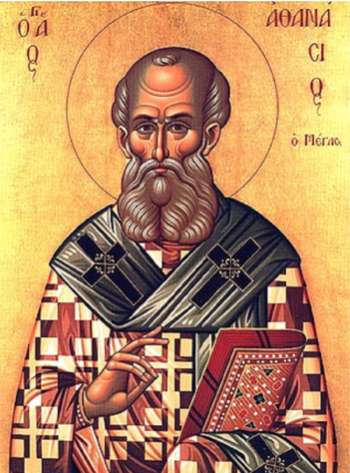
St. Athanasius (c. 296 - 373)
Homoousion tou Patri (ὁμοούσιον τῷ Πατρί) NOT Homoiousion tou Patri (ὁμοιούσιον τῷ Πατρί).
"God became man so that man might become God."
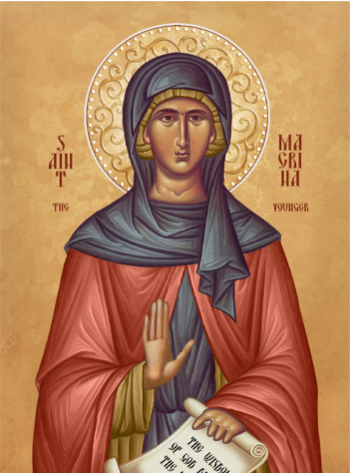
St. Macrina (c. 327 - 379)
A role model, spiritual guide, and intellectual companion to the Cappodocian Fathers: St. Gregory of Nazianzus and St. Basil.
The Cappodocian Fathers / Three Hierarchs
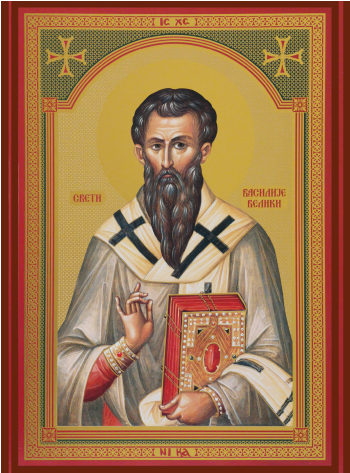
St. Basil the Great(c. 329 - 379)
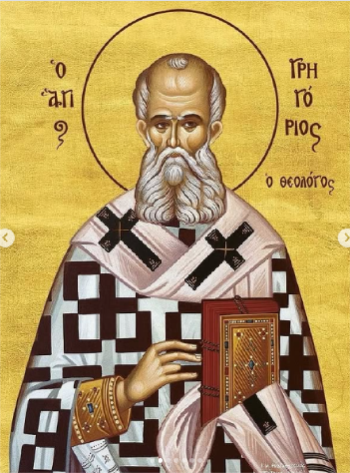
St. Gregory of Nazienzus (c. 329 - 390)
"The unassumed is the unhealed. Christ assumed the whole of Adam with rational soul"
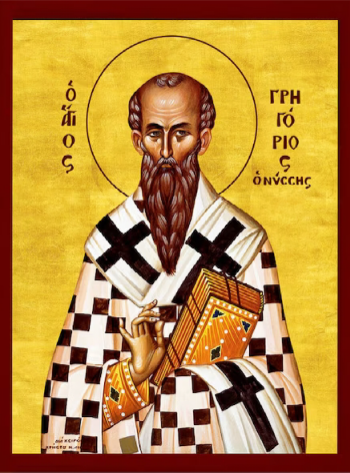
St. Gregory of Nyssa (c. 335 - 395)
St. Basil the Great, St. Gregory of Nazienzus, St. Gregory of Nyssa, against Arianism, they clarified the relationship between the one divine ousia (essence/substance) and the three hypostases (persons) — Father, Son, and Holy Spirit. They helped solidify the orthodox understanding of the Trinity against various heresies.
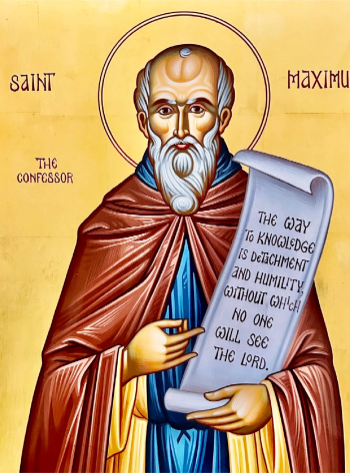
St. Maximus the Confessor (c. 580 - 662)
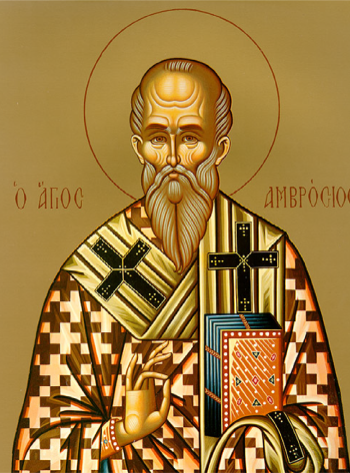
St. Ambrose of Milan (c. 339-397)
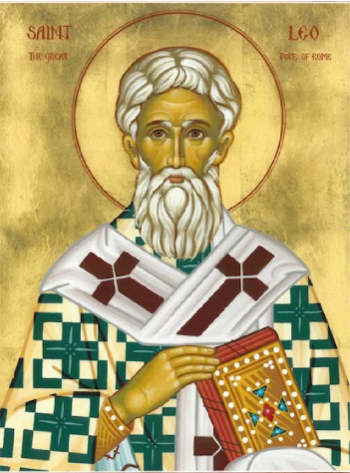
Pope Leo I (c. 400 - 461)
"For just as the reasonable soul and flesh is one man, so Christ is one Person in two natures."
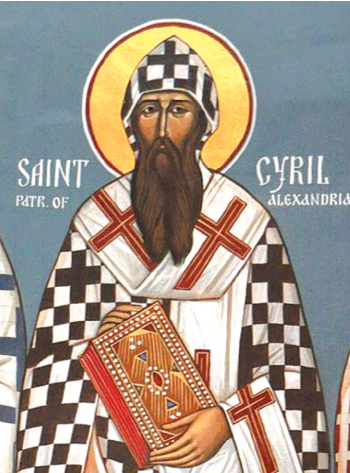
Cyril of Alexandria (c. 376 - 444)
Arguing against Nestorianism, he emphasized the unity of Christ's Person.
"For we do not divide the one Christ into two Sons, but we say that He is one and the same."
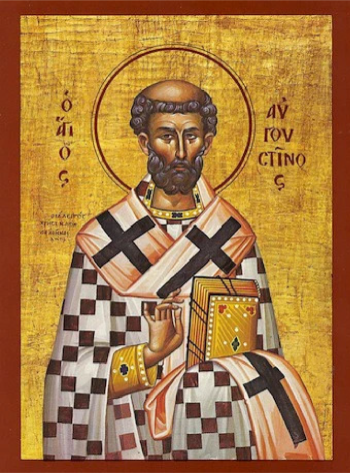
St. Augustine of Hippo (354-430)
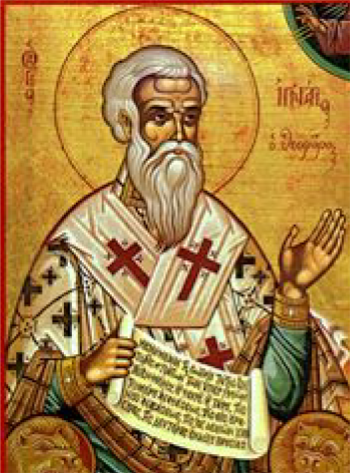
St. Ignatius of Antioch (c. 35-c. 107)
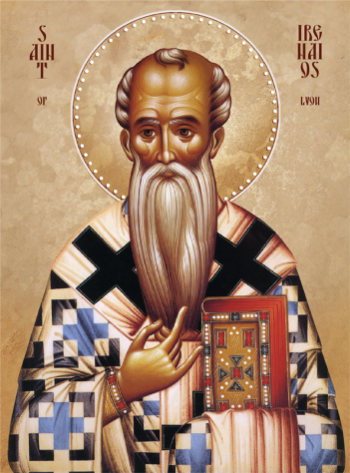
St. Irenaeus of Lyons (c. 130-c. 202)
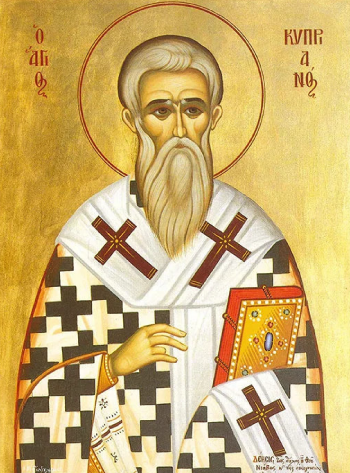
St. Cyprian of Carthage (c. 200-258)
"Outside the Church there is no salvation."
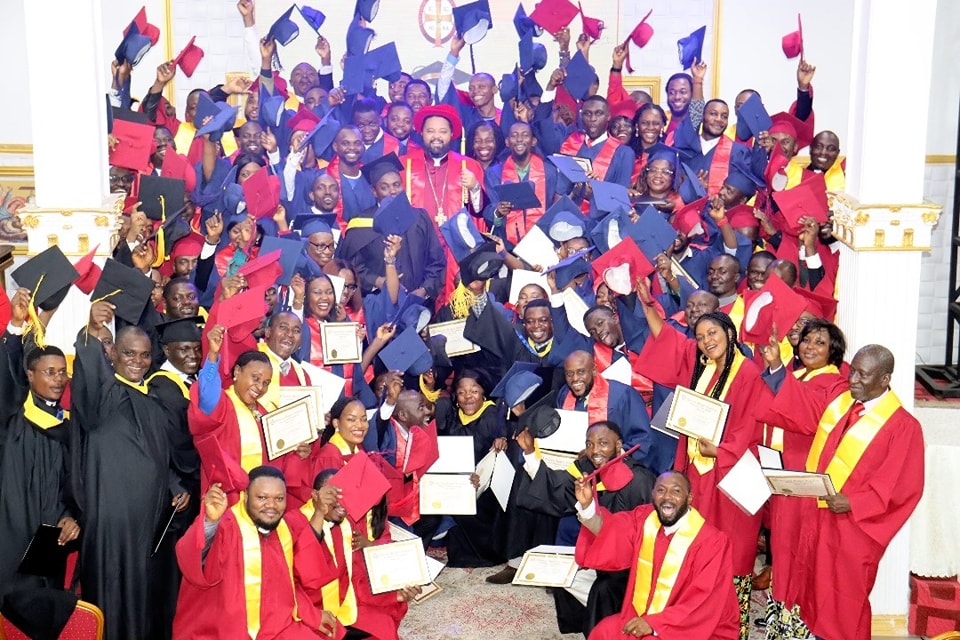
About Theosis Higher Institute
Officially launched in the year 2014, Theosis Higher Institute is an institute of patristic and apostolic understanding founded by Prof. Shawn Smith. It is a revelatory educational program to restore to the church the apostolic and ancient church patristic vision of the Gospel.
The institute is dedicated to ministers who desire to understand the inheritance of our faith, that is the historic foundation of Christianity in order to recapture the apostolic and ancient church patristic vision of the Gospel.

